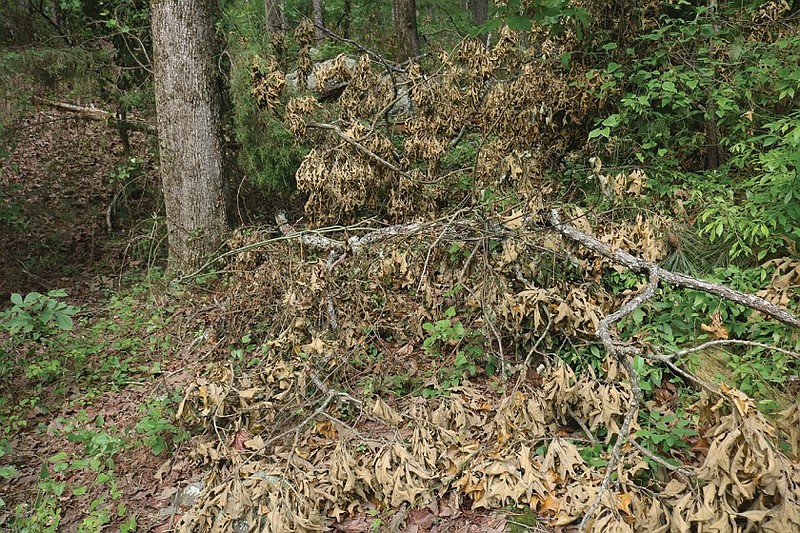Central Arkansas Water's board of commissioners seems unlikely to authorize a lawsuit against Dennis Rainey, the Christian lifestyle influencer convicted of a misdemeanor last month for cutting back trees on property owned by the water utility in the Lake Maumelle watershed.
On June 2, a jury rejected a felony charge and instead settled on a misdemeanor conviction of second-degree criminal mischief and a $1,000 fine for Rainey following a three-day trial.
Rainey, who surrendered to authorities in July 2021, has maintained he believed he had permission when his crew cut back the grove of more than 100 trees on property owned by the utility. The purpose was to improve the view of Lake Maumelle from his family's home.
At the monthly Central Arkansas Water board meeting Thursday, Chairman Jay Barth raised the possibility of a civil case as a discussion matter and asked the utility's general counsel, David Johnson, to give a report now that the criminal case against Rainey has concluded.
It was not a formal action item and commissioners did not take a vote. Nevertheless, most appeared to be content with not pursuing a lawsuit against Rainey for the time being.
Johnson mentioned three broad factors for the board's consideration: the benefits and costs to the utility and the likelihood of success in a case.
Triple damages are a possibility, Johnson said, but he noted that differing appraisal numbers regarding the trees during the trial were frustrating to the jury. Obtaining an award for attorneys' fees would not be possible, he indicated.
A non-monetary benefit Central Arkansas Water already had received was the news coverage regarding the tree cutting early on, Johnson said.
The message was "clearly sent" that the water utility is serious about protecting the watershed and will do whatever it takes to hold violators accountable, he said.
Nevertheless, Johnson suggested that "the news cycle's probably run on this story," meaning the same kind of public-relations or messaging benefits might not result from a lawsuit.
Referring to the attorneys Rainey hired for his criminal case, Johnson said, "Those engagements were no doubt expensive for Mr. Rainey, but I have no doubt, too, that he would ... make the same kind of investment on a second time around."
In order to go "toe-to-toe" with Rainey, Central Arkansas Water probably would want to partner with a law firm with the attorneys, staff and resources to put up that kind of fight, Johnson said. "It would be expensive," he said.
A lawsuit would involve a new cycle of work for Central Arkansas Water staffers on top of their earlier work in support of the prosecuting attorney's office, Johnson said.
In Rainey's criminal trial, the defense "was really smart with their strategy in the case," which divided the jury, Johnson said. He also mentioned some of the evidentiary considerations regarding past conversations that may have taken place about the trees.
The utility has until May 2024 to file based on the statute of limitations, Johnson said.
Raven Lawson, the utility's watershed protection manager, said there could be some additional efforts at communicating the message or examining laws, rules and regulations that could be enacted.
She said that "our time and effort would be better spent moving forward to try to prevent something from happening again."
Commissioner Jim McKenzie said he agreed that pursuing a civil case would not be beneficial compared to the cost. However, in the future, he said the utility needs "an absolute hard consensus by all public and private agencies about what the value of this timber is."
Vice Chair Carmen Smith said she had no desire to cost ratepayers more money than necessary, but asked whether Rainey had ever apologized throughout the process, even after his conviction.
Johnson couldn't exactly recall, but said Rainey may have made some kind of statement expressing regret when he appeared before the utility's board in 2021.
Smith as well as commissioner Kandi Hughes floated the idea of some kind of partnership or communications campaign involving Rainey and conservation groups, perhaps after the statute of limitations has run out.
At the conclusion of the discussion, Barth said that they would "frustratingly" let the matter go unless something happens before the expiration of the statute of limitations.

